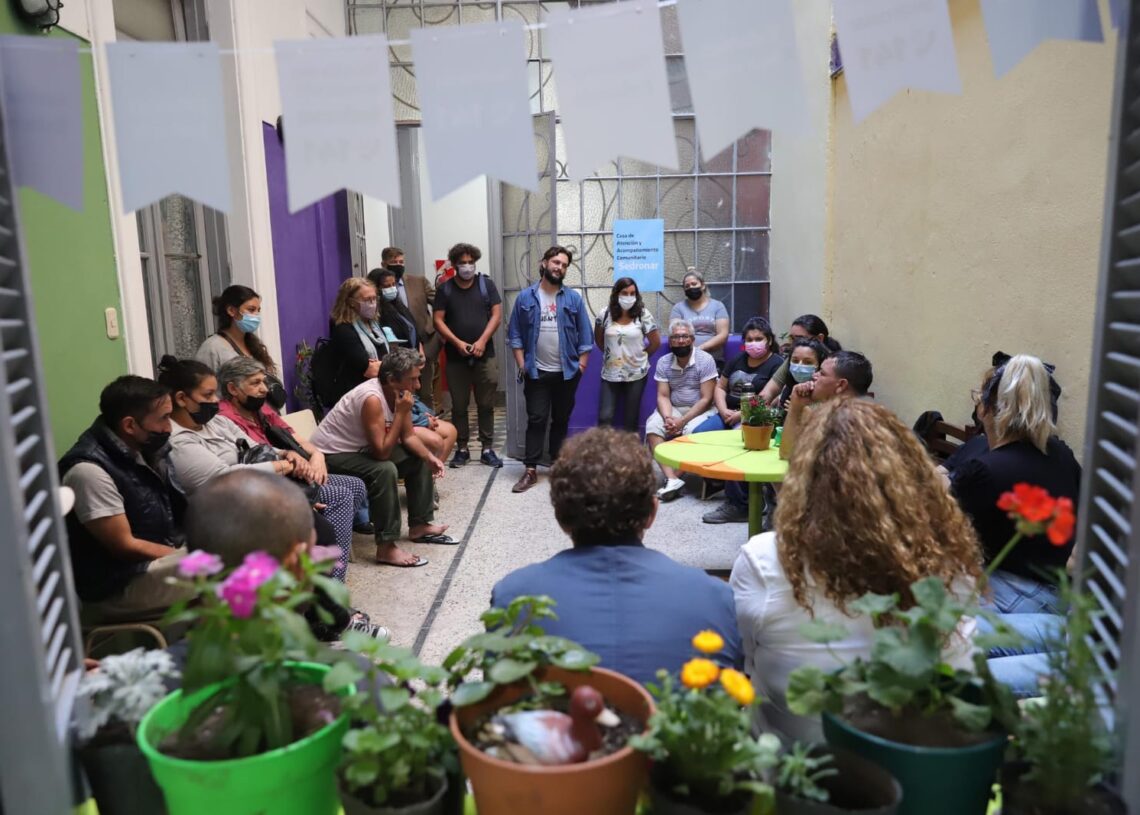With the aim of supporting the needs of the countries of Latin America and the Caribbean in relation to drug policies, the third phase of the COPOLAD cooperation programme has been launched. It is to be boosted by €15 million provided by the European Union, in partnership with 31 countries in Latin America and the Caribbean.
Representatives of this programme visited Buenos Aires and Montevideo last week to analyse the consequences of the pandemic for drug policies in the region, and determine the two countries’ interests in the programme.
The process was set in motion in Argentina on 28 March through a meeting with Gabriela Torres, Head of the Secretariat for Comprehensive Drug Policies (SEDRONAR),to learn about some of its support systems for people and communities affected by problematic drug use, and to respond to the needs in the context of Covid-19. Those responsible for the control of the illegal drug market, Massimo Meccheri and Alessandro Loddo from IILA, took the opportunity to meet representatives of the Ministry of Security and the Attorney General’s Office, who expressed their interest in improving the policies on money laundering and management of seized assets. In addition, Javier Sagredo, Director of COPOLAD, and Ana Cirujano, a FIIAPP expert, were able to accompany SEDRONAR on a visit to the communal homes that have been developed with the support of the administration throughout the country, and participate in meetings with users of these services.
Uruguay
In Uruguay, the COPOLAD delegation met the Secretary General of the National Commission on Drugs, Daniel Radío, to learn about the country’s priorities in aspects of consumption, control of the illegal drug market and those regarding the Observatories. The delegates of the programme were also able to visit some care facilities for people with problematic drug use. During the visit, Uruguay led the launch of the Working Group “Support for the adaptation/generation of addiction care programmes and services to meet the needs of women and vulnerable populations, and measures to facilitate their access” in which officials from more than 35 countries in Europe, Latin America and the Caribbean took part.
The programme focuses both on the aspects of attention to problematic drug use, citizen security and financial impact on organised crime, as well as support for the generation of more and better knowledge of the various dimensions of the drug phenomenon, and the expansion of technical and political dialogue, within the framework of the 2030 Agenda and human rights. The promotion of gender equality and fairness will be a central theme of the actions.
Over the next few years, COPOLAD will carry out over five hundred activities with public administrations in Latin America and the Caribbean, which include training for civil servants, research, seminars, congresses and exchanges with other professionals through field visits, and spaces for innovation in the development of effective responses based on public policies.
The programme focuses both on the aspects of attention to problematic drug use, citizen security and financial impact on organised crime, as well as support for the generation of more and better knowledge of the various dimensions of the drug phenomenon, and the expansion of technical and political dialogue, within the framework of the 2030 Agenda and human rights. The promotion of gender equality and fairness will be a central theme of the actions.






